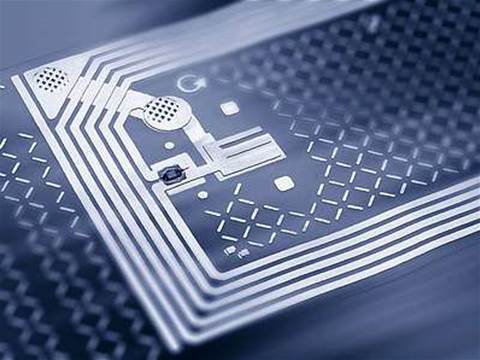RFID tracking
The growing number of RFIDs has led to fears that the same technology could be used to track people. The RFID Gazette warns that employers have the upper hand to keep tabs on their employees by insisting on making employees wear the chips, whether it be directly or indirectly (think of a courier or a routine service person).
Everyday smart cards which provide access to employees into most corporate buildings, contain RFIDs that can tell a boss much more about the employee than a simple swipe to open the door. The data is easily catalogued by a computer and can reveal the times the employee arrives at work, finshes and much more.
But when it comes to RFID hacking, Ebay is proving a winner for enterprising data skimmers, who seek the RFID data. According to a Los Angeles Times report, San Francisco native Chris Paget armed himself with a cheap Motorola reader purchased on the auction site and scanned the hilly streets of his city in search of accessible and unsecured RFIDs. Which is most of them, really.
Within an hour Paget had found what he was looking for: the unique serial codes contained in RFID-equipped passports. The test proved how easy it was for people to download the codes and potentially identify people without their knowledge, and silently track the person if they needed too.
The RFID breach already has a name in security circles: Little Brother. And this ability to send and receive data to a reader (or scanner) is happening right across our industrialised world, at airports, through border crossings and even on an ordinary trip to the supermarket.
The future for RFID
For now, the jury is out until more studies are done on the security implications of RFIDs.
Meanwhile, the technology is getting more sophisticated. RFID chips are now so small in fact, that they measure no longer than a grain of rice, if not much smaller.
Some state laws in Australia even make it mandatory to chip newly purchased cats and dogs in Australia, a bond between man and pet, that keeps us well within the reach of RFIDs whether we like it or not. More troublingly however is the claim that RFID use in our pets may cause cancer.
For more reading, The RFID journal and RFID Gazette have a great collection of articles and topics on the subject, while Patrick Redmond's lectures on the dangers of RFID can be found on his website.






_(21).jpg&h=142&w=230&c=1&s=1)
.jpg&h=142&w=230&c=1&s=1)





.jpg&w=100&c=1&s=0)











